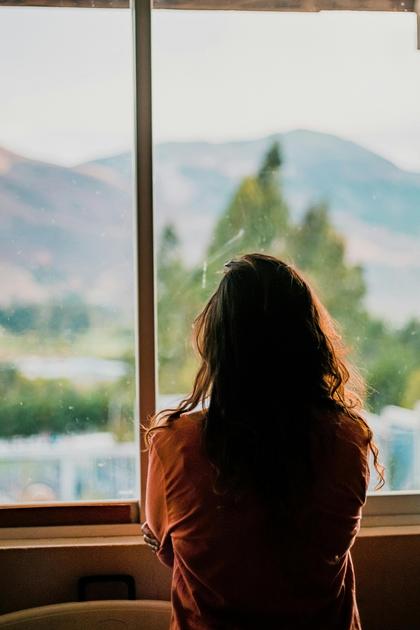Have you ever found yourself lying awake in bed, with anxiety at night clouding your thoughts? If you’re a woman over 30, this feeling might be all too familiar. This struggle affects countless women, making restful sleep seem like an elusive dream. Anxiety can block not just our rest but also our ability to recharge, making each day feel like a challenge. But know that you’re not alone. Many women face this battle silently, and it’s time to open up about these feelings and explore solutions together.
When darkness falls, our minds often race with worries from the day or fears about the future. These overwhelming thoughts can lead to fatigue and insomnia, part of a vicious cycle that disrupts our mental well-being. It’s crucial to understand why this happens and how we can address it effectively.
Understanding the Roots of Anxiety at Night
Anxiety at night is a quiet storm that brews in many women’s minds as they prepare for sleep. Often, it may feel as if the day’s worries are on repeat, creating a mental playlist that blocks out the silence. But where does this anxiety stem from? It can come from multiple sources: stress from work, waves of responsibility at home, or unresolved feelings that linger just beneath the surface. Each woman’s journey is unique, yet they may all grapple with a similar struggle.
Nighttime anxiety can arise when we attempt to unwind but feel overwhelmed by unresolved thoughts or concerns about the future. Women may find their minds racing as they lie in bed, feeling a sense of restlessness that seems insurmountable. Understanding these roots is the first step to overcoming them.
Why Women Are Particularly Affected
Statistics show that women are more likely to experience anxiety than men. Hormonal fluctuations, especially during the menstrual cycle, pregnancy, and menopause, can heighten emotional sensitivity. Additionally, societal pressures often lead women to juggle multiple roles, which can create stress and anxiety.
When responsibilities pile up, it can seem impossible to find the time to care for oneself. This struggle is often compounded by the need to balance career aspirations, family obligations, and personal desires. Women frequently take on the emotional labor of caregiving, which can lead to mental exhaustion.
The Impact of Sleep Deprivation
Sleep deprivation doesn’t just leave you feeling tired; it can intensify feelings of anxiety and lead to a vicious cycle. Without a full, restorative night’s sleep, you may find it difficult to cope with daily stressors. This struggle is particularly detrimental to women, as studies suggest that poor sleep can exacerbate hormonal imbalances.
Sleep is vital not only for our physical health but also for emotional well-being. Without adequate rest, the anxiety that already exists can multiply, leading to a heightened sense of fear and dread. A well-rested body and mind tend to have a clearer perspective, helping tackle challenges more effectively.
Techniques for Calming Your Mind
Here are some practical techniques to help calm your mind before bed:
- Breathing Exercises: Deep, slow breathing can reduce anxiety levels. Try inhaling for four counts, holding for four, and exhaling for six.
- Guided Imagery: Visualize a calming scene or an ideal moment from your past to help distract from anxious thoughts.
- Journaling: Write down your thoughts before bed. It can be therapeutic and may help clear your mind.
- Gratitude Lists: Listing three things you’re grateful for can help shift your focus from anxiety to positive thoughts.
Discover how many women are tackling their anxiety challenges without heavy medications. See here for more!
Creating a Peaceful Sleep Environment
Your environment plays a significant role in your ability to relax at night. Here are steps you can take to cultivate a more peaceful space:
- Dim Lighting: Use soft light in the evening to signal your brain that it’s time to wind down.
- Temperature Control: Keep your bedroom cool. A comfortable temperature promotes better sleep.
- Limit Noise: Consider white noise machines or soothing sounds to mask disruptive noises.
- Declutter: A tidy space can bring a sense of calm and minimize distractions.
The Role of Hormones in Sleep Patterns
Hormones significantly affect how women experience sleep and anxiety. Fluctuations in estrogen and progesterone can lead to changes in mood and energy levels. For example, during the menstrual cycle, many women report heightened anxiety and disrupted sleep.
As women enter perimenopause and menopause, hormonal changes can exacerbate sleep disturbances. Understanding the connection between hormones and sleep patterns allows women to navigate their unique experiences effectively.
Natural Remedies for Nighttime Anxiety
Many women seek natural remedies to ease nighttime anxiety:
- Herbal Teas: Chamomile and valerian root are known for their calming effects.
- Aromatherapy: Scents like lavender can enhance relaxation and promote better sleep.
- Magnesium Supplements: Magnesium may support relaxation by regulating neurotransmitters.
Mindfulness Practices to Try Before Bed
Incorporating mindfulness into your nighttime routine can be transformative. Here are some practices you might consider:
- Meditation: Spend a few minutes focusing on your breath or a guided meditation designed for sleep.
- Your Body Scan: Bring awareness to different body parts, releasing tension as you go.
- Mindful Movement: Gentle yoga or stretching can release physical tension and promote relaxation.
Connecting with Other Women Facing Similar Struggles
Sometimes, sharing feelings and experiences with others can provide a sense of relief. Support groups, whether in-person or online, allow women to connect, share stories, and find comfort in knowing they are not alone. Hearing how others manage their anxiety can be incredibly empowering.
Finding Hope and Solutions for Better Sleep
Remember that it is entirely possible to find relief from nighttime anxiety. With each step you take to address your well-being, you pave the way for better sleep and a calmer mind. Feel empowered knowing that many women have walked this path before you and found ways to heal.
By taking proactive measures like exploring the various techniques mentioned above, you can develop a personalized approach to better sleep. Your journey towards restful nights is within reach.
Let’s embrace this journey together, ladies. Healing is possible, and you deserve the restorative sleep that fuels your dreams!







